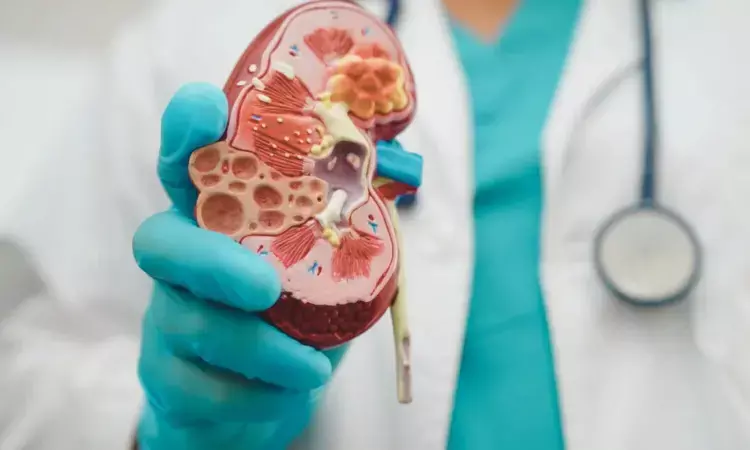- Home
- Medical news & Guidelines
- Anesthesiology
- Cardiology and CTVS
- Critical Care
- Dentistry
- Dermatology
- Diabetes and Endocrinology
- ENT
- Gastroenterology
- Medicine
- Nephrology
- Neurology
- Obstretics-Gynaecology
- Oncology
- Ophthalmology
- Orthopaedics
- Pediatrics-Neonatology
- Psychiatry
- Pulmonology
- Radiology
- Surgery
- Urology
- Laboratory Medicine
- Diet
- Nursing
- Paramedical
- Physiotherapy
- Health news
- Fact Check
- Bone Health Fact Check
- Brain Health Fact Check
- Cancer Related Fact Check
- Child Care Fact Check
- Dental and oral health fact check
- Diabetes and metabolic health fact check
- Diet and Nutrition Fact Check
- Eye and ENT Care Fact Check
- Fitness fact check
- Gut health fact check
- Heart health fact check
- Kidney health fact check
- Medical education fact check
- Men's health fact check
- Respiratory fact check
- Skin and hair care fact check
- Vaccine and Immunization fact check
- Women's health fact check
- AYUSH
- State News
- Andaman and Nicobar Islands
- Andhra Pradesh
- Arunachal Pradesh
- Assam
- Bihar
- Chandigarh
- Chattisgarh
- Dadra and Nagar Haveli
- Daman and Diu
- Delhi
- Goa
- Gujarat
- Haryana
- Himachal Pradesh
- Jammu & Kashmir
- Jharkhand
- Karnataka
- Kerala
- Ladakh
- Lakshadweep
- Madhya Pradesh
- Maharashtra
- Manipur
- Meghalaya
- Mizoram
- Nagaland
- Odisha
- Puducherry
- Punjab
- Rajasthan
- Sikkim
- Tamil Nadu
- Telangana
- Tripura
- Uttar Pradesh
- Uttrakhand
- West Bengal
- Medical Education
- Industry
Atacicept Shot Significantly Reduces Proteinuria in IgA Nephropathy: NEJM

USA: A novel self-administered drug, Atacicept, which inhibits two key immunoregulatory cytokines, showed a 45.7% reduction in proteinuria among patients with IgA nephropathy in the phase III ORIGIN 3 trial, compared to only a 6.8% reduction with placebo by week 36. The effect was clinically meaningful and consistent across subgroups.
- The interim analysis involved 203 patients, with 106 receiving atacicept and 97 assigned to placebo.
- At week 36, patients treated with atacicept showed a 45.7% reduction in urinary protein-to-creatinine ratio (UPCR) from baseline.
- The placebo group demonstrated only a 6.8% reduction in UPCR during the same period.
- The adjusted geometric mean difference between the two groups was 41.8 percentage points.
- The reduction in proteinuria with atacicept was statistically significant and clinically meaningful.
- Adverse events were reported in 59.3% of patients in the atacicept arm and 50% in the placebo arm.
- Most adverse events were mild or moderate in nature.
- The therapy was generally well-tolerated, with no unexpected safety issues identified during the interim analysis.
Dr Kamal Kant Kohli-MBBS, DTCD- a chest specialist with more than 30 years of practice and a flair for writing clinical articles, Dr Kamal Kant Kohli joined Medical Dialogues as a Chief Editor of Medical News. Besides writing articles, as an editor, he proofreads and verifies all the medical content published on Medical Dialogues including those coming from journals, studies,medical conferences,guidelines etc. Email: drkohli@medicaldialogues.in. Contact no. 011-43720751


